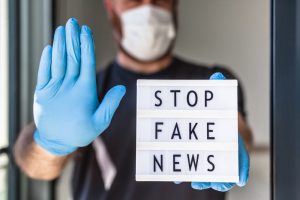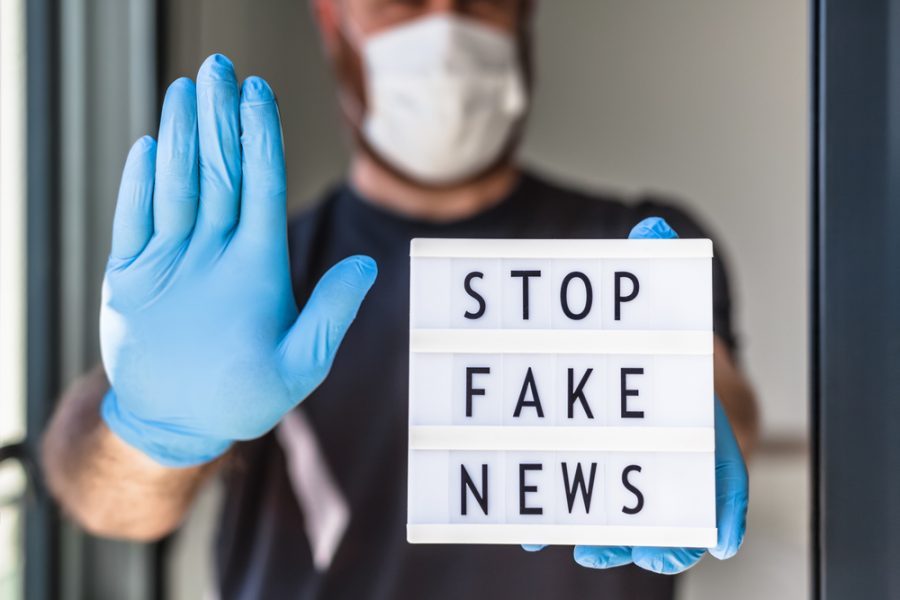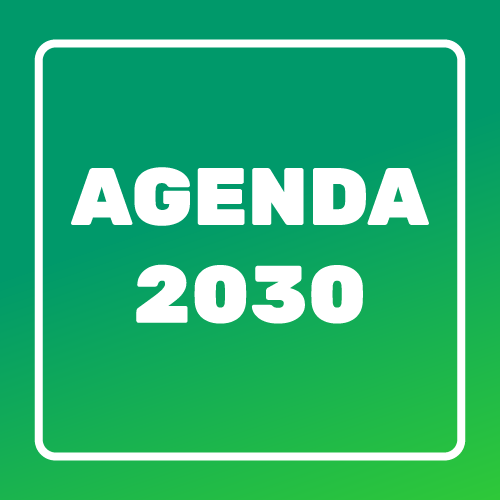Health is one of the areas that suffer most from fake news
Health Communication Lab brings together experts to discuss how to deal with disinformation

The first Health Communication Lab – organized by Aberje and sponsored by Novo Nordisk and Pfizer – brought together experts on May 12 to talk about “Fake News: Experiences and teachings from the Health area for corporate communication.” Health is one of the areas that suffer most from misinformation – it fell prey to an entire industry that produces material to disorient professionals and society. For the participants, one of the ways to combat this problem is to work together.
The event was attended by Ricardo Castellani, communication manager at Novo Nordisk; Natalia Cuminale, CEO and content director of Futuro da Saúde; and Camila Damato, external and institutional communications manager of Pfizer Brasil. Luiz Chinan, content manager of the Aberje Alliance to Combat Fake News, acted as mediator.
“The issue of disinformation and fake news gained great relevance in the 2018 elections, but we must not forget that if the political area heats up this debate, it is not the area most affected, but the area of health, not only because of the amount of misinformation but because of their seriousness, as it directly affects people’s lives,” said Chinan.
In 2020, Aberje created a group to deal with fake news led by Chinan. “In 2021, we effectively started the Aberje Alliance to Combat Fake News with this group of more than 100 leaders,” he said. “We must form a network of communicators interested in this topic and in helping society overcome this phenomenon that today has become a social pathology.”
For health specialist Natália Cuminale, fake news is a public health problem as it directly impacts people’s lives. “Fake news did not appear now in the pandemic. Perhaps it was restricted to the analysis of the academic environment, but even before WhatsApp, we had already received fake news by email chains, for example. But it didn’t spread that much. With the pandemic, when we saw the spread of the coronavirus, we also saw a very high speed of disseminating information,” she said.
Pfizer’s Camilla Damato understands that talking about fake news never hurts. “We are in an election year where this battle tends to grow. We’ve been looking very carefully at fake news for a long time at Pfizer. Fake news turns into truths, but lives are impacted when we talk about health,” she said.
Ricardo Castellani agrees with Damata when stressing that the ideal scenario is to work in a network to face this industry of disinformation that has intensified with the pandemic. “When we map what has been said about diabetes and obesity in the different media, it is comforting to see that the press already treats these diseases in the way they should be seen. Because they are critical factors for the rarer cases of Covid-19, obesity, and diabetes have provoked a greater interest in people for true information,” he said.
You can watch the session here:
https://youtu.be/EmRr8w-99Ag
Destaques
- Global Alliance’s Latin America Regional Council Kicks Off 2025 with Virtual Meeting
- LiderCom Discusses Communication and DE&I Challenges in the Current U.S. Political Landscape
- Theme of the Year “Communication for Transition” Renewed for 2025
- Web Summit Lisbon 2024: Innovation and Ethics in a Future Shaped by AI
- Global Alliance Launches Recognition Program for Young Communicators
ARTIGOS E COLUNAS
Marcos Santos O brilho é delas!Giovanni Nobile Dias Diálogo e narrativa: o poder do relacionamento duradouro com jornalistasElizeo Karkoski A Importância da Comunicação Interna na Cultura Organizacional parte 2 – níveis de maturidadePaulo Nassar Como a comunicação transformou a política monetária dos Bancos CentraisLeila Gasparindo Tempos sombrios: retrocesso nas Políticas de Diversidade demonstra falta de autenticidade corporativa































